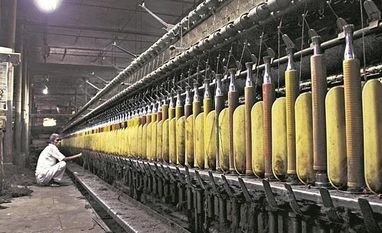The number of factory inspections carried out by labour departments in several states and Union Territories (UTs) in 2019 nearly trebled to a 13-year high. The total number of inspections carried out by labour departments rose to 85,558 in 2019, from 28,489 in 2018, according to the latest annual data released by the Labour Bureau.
The annual data on factory inspections released by the Labour Bureau with a time lag is a compilation of the data furnished to it by state and UT labour departments, as the rules framed under the Factories Act, 1948, impose an obligation on all registered factories to submit annual statutory returns and administrative reports to their local labour commissioners.
In 2006, 92,261 inspections were conducted — a higher number than the number carried out in 2019.
Of the total 234,696 registered factories, 69,328 (29.5 per cent) underwent inspection only once in 2019, while 15,272 (6.5 per cent) factories underwent inspection twice, and just 584 factories (0.2 per cent) underwent inspection thrice.
A senior official from the Department of Employment and Labour says that the rules framed under the Act impose an obligation on the inspectorate staff to enquire into complaints lodged by individual workers, trade unions, private persons, etc, regarding infringement of the provisions of the Factories Act, 1948.
More From This Section
“The inspectorate cannot take suo motu action against any factory for any violation. It is only upon receipt of a formal complaint that action is taken by the department. The rise in the number of inspections means more violations were reported in the year,” he adds.
However, K R Shyam Sundar, visiting professor at the Impact and Policy Research Institute, says that the main reason for this spike could be that a major industrial state that might not have submitted the data earlier would have done so later in the year, as this data by the Labour Bureau does undergo significant fluctuations.
“Mostly, these violations are borne by small and medium-scale and labour-intensive enterprises, which are essentially home-run units or have meagre resources to comply with the provisions of the Act. Most of these violations occur due to non-compliance with the safety and environmental provisions of the Act. A major industrial state like Tamil Nadu, which has huge clusters of small enterprises, furnished its data in 2019, which could be the reason for this spike,” he adds.
Also, the number of convictions recorded in 2019 (5,722) doubled from the 2018 levels of 2,630.
“Generally, the inspectorate issues a notice to the management regarding the violation. If it fails to comply with it, legal action is taken against the violator, resulting in a conviction as well. Generally, they do comply, and it’s only a few repeat offenders that face legal action,” adds the official.
Amarjeet Kaur, general secretary of the All India Trade Union Congress, says that the rise in inspections and convictions is a result of the general disregard for workers’ rights that has increased in recent years.
“It is high time the government takes cognisance of the issue and gives more powers to the factory inspectorates to rein in the offenders,” she observes.
)